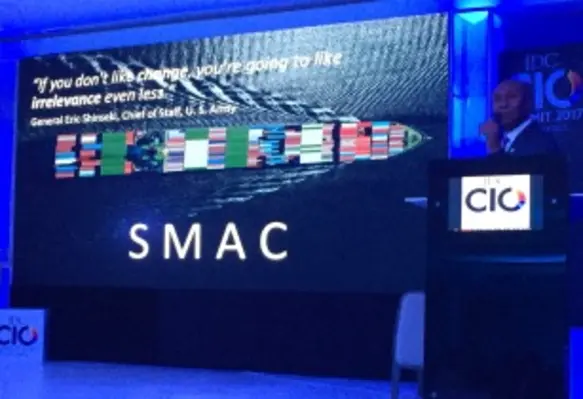By Magnus Nmonwu, Regional Director for Sage in West Africa
The IDC CIO Summit, currently underway in Lagos, is focusing on how the next wave of social, mobile, analytics and cloud (SMAC) technologies will unleash innovation and productivity in the enterprise by delivering better employee and customer experiences.
These technologies empower people by making apps, services and information accessible everywhere (mobile), collaborative and easy-to-use (social) and tailored and responsive to their needs and context (analytics). In the background, the power of the cloud makes it affordable and easy to deploy the latest applications and solutions to users wherever they are.
Nigerian CIOs should look at how they can use SMAC (also known as the Third Platform) to deliver personalised experiences that are tailored to new working styles across social and mobile as well as the expectations of the connected customer. It’s all being made possible by growing Internet penetration, with more than 90 million Internet users in Nigeria looking to organisations to provide them with digital services and experiences.
SMAC should be built on the foundation of a next-generation business management system that gives end-users access to real-time information and services wherever they are. Such a system has a simple user interface, requiring little or no training, but delivers a powerful user experience. It resembles and is as easy to use as a mobile app for a social media service.
It features social networking features that make it easy for people to collaborate with others and share information. As such, today’s business management solutions are tailored to the needs of a digital native accustomed to WhatsApp, Netflix and Snapchat rather than a worker used to email and old-fashioned ERP.
The solution can be accessed from a mobile app or a standard web browser, extending CRM, ERP, project management and business process management software to any place where there is an Internet connection. With wearables and the Internet of Things coming of age, enterprises will have new interfaces where they can interact with employees and customers, as well as collect data.
Analytics tools give managers and leaders access to real-time data about the business’s performance on their mobile devices for strategic decision-making. But they also extend data to everyone in the business. At an operational level, the combination of big data and machine learning will allow companies to tailor customer and employee experiences to the needs of different segments to optimise sales and productivity.
Paired with the Internet of Things, advanced analytics and machine learning are bringing about the fourth industrial revolution. Connected devices and sensors, cloud computing, advanced robotics, intelligent software, and a range of other technologies are enabling companies to produce complex products in a smooth, automated process using specialist robots with very little human input.
In this environment, analytics is used to forecast issues such as machine errors or supply chain interruptions so that quality levels and uptime remain high. The Nigerian CIO’s role will be about managing the challenges and opportunities presented by digital transformation and the Internet of Things. Expect this trend to bring the same level of disruption to old-style industries such as mining, manufacturing and construction as the Internet has already brought to banking, media and retail.
*Sage is a sponsor at the IDC CIO Summit series. Lagos is currently underway; Johannesburg took place on 10 May. Nairobi will take place on 14 June and Mauritius, 16 August.






















